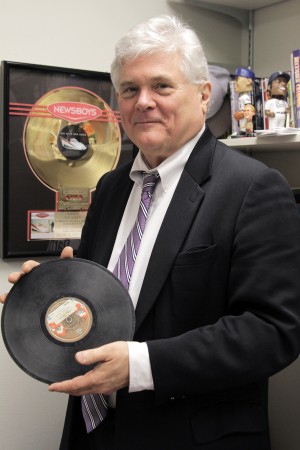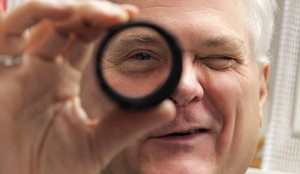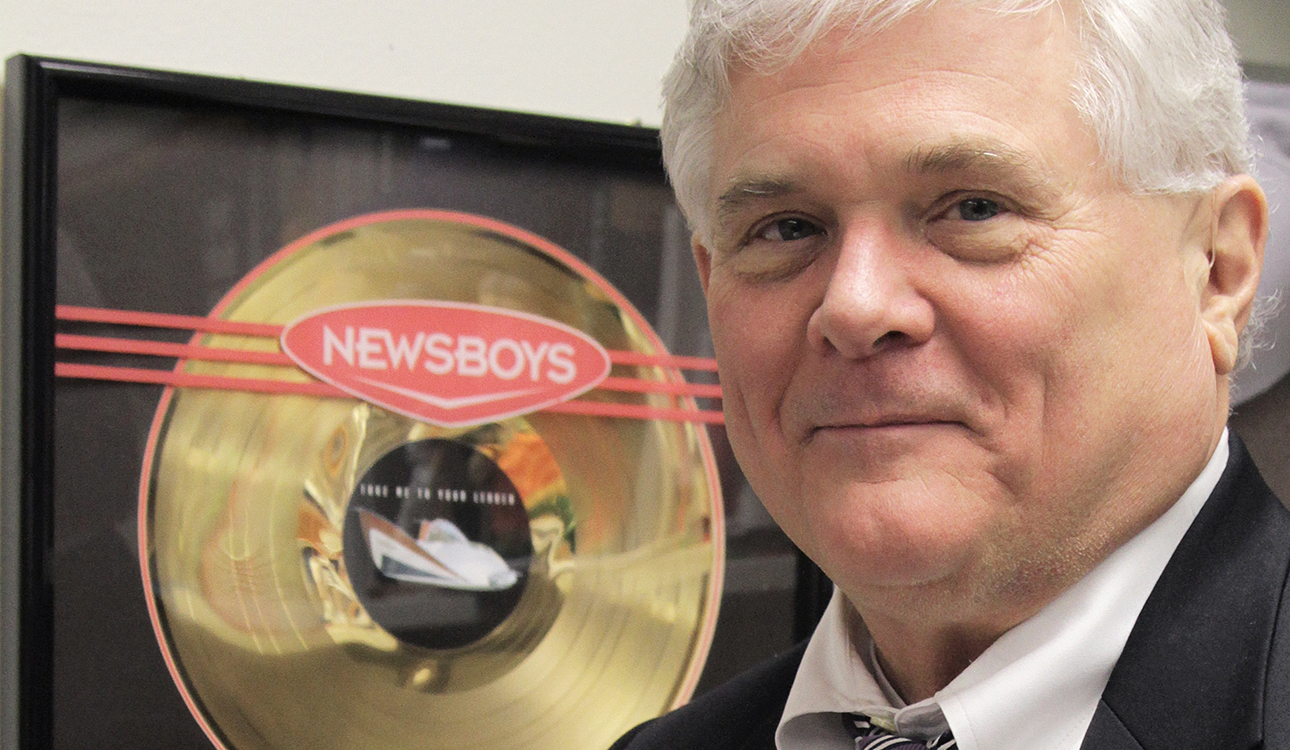
Travis Taylor | Lariat Photo Editor
Staff Writer
What started out as a fascination of gospel music turned into a project fueled by Baylor associate professor Robert Darden’s passion for keeping it alive.
The Royce-Darden Collection of black gospel music is set to be a part of the Smithsonian National Museum of African-American History and Culture.
The museum, under construction on the National Mall in Washington, is scheduled to open in 2015.
Though nothing is currently set in stone for the exhibit, Darden said the museum has discussed moving an entire African-American record store from Philadelphia.
In 2005, Darden sent in an editorial to the New York Times after discovering that 75 percent of old gospel music was not readily available to the public. In his editorial he stated, “for an unabashed fan like me, it’s a painful situation.”
“I was so angry about this fact,” Darden said. “This is the foundation of all American music, so I wrote an editorial about it so that future generations would find it a sin to lose the entire foundation of American music.“
The day after the article ran, a man named Charles M. Royce contacted Darden. Royce is the president, cfo-chief investment Officer and portfolio manager of The Royce Funds.
“He said, ‘You find out what to do to help this and I’ll pay for it,’” Darden said.
Shortly after, Darden discussed the project with the staff at Moody Memorial Library. Together, they came up with a proposal that required $350,000 in funds and sent it to Royce.
Upon receiving the proposal, Royce sent the check.
“What we needed to do was buy the digitization equipment,” said Tim Logan, associate vice president for Baylor’s electronic library. “This included a good turntable and high-end equipment that would capture the music clearly. We also needed a sound booth that would cancel out any other sound in the building.”
Darden said he wanted to name the collection after Royce, but Royce would not let him. They reached a compromise by calling it the Royce-Darden Collection.
Darden said a number of other people like the Riley and Pritchard families have also help fund the project.
“Nobody does anything like this alone,” Darden said. “The people in the library are the ones that made this possible.”
The library had to hire two people for the digitization process and the cataloging position. Since then, these positions have become full-time staff positions in the library.
“It’s an ongoing process because there is material out there that people are still finding,” Logan said.
One of the main issues the library staff ran into with the project was the issue of copyrights on the music. The laws vary from state to state and each song or piece has to be looked into individually.
“It is a big project and one that does not exist anywhere else, so we had to work extra on it. I think we’ve created a very fascinating and valuable project,” Logan said.
Darden’s father was part of the Air Force, which was racially integrated in 1949. As a result, Darden said he had plenty of African-American friends as a child and would hear gospel music in their houses. Though he has no personal memory of it, Darden said his parents informed him of his early fascination with Mahalia Jackson’s Christmas album.
He went on to write the gospel music column for Billboard magazine. Though he has moved on from writer to professor, he continues to write on black gospel music, now in book form.
Darden said he cannot recall a specific time when his fascination turned into his calling, but he firmly believes that the collection and preservation of this music is his calling.
“Some of the greatest music on the planet are on these fragile 45s of a guy singing the spirituals or gospel songs during the worst of the Jim Crow oppression,” Darden said. “Pretty powerful stuff.”
Darden said he hopes to make this music more available. The collection continues to grow, but the struggle now is making it available without breaking copyright laws. Darden said this music is not only an important part of history, but also important in present times.

Travis Taylor | Lariat Photo Editor
Logan, though he said he admits he is not particularly fascinated by the music, said he agrees with Darden that the collection is meaningful.
“The importance of the project is we hope to save music that would otherwise disappear,” Logan said.






